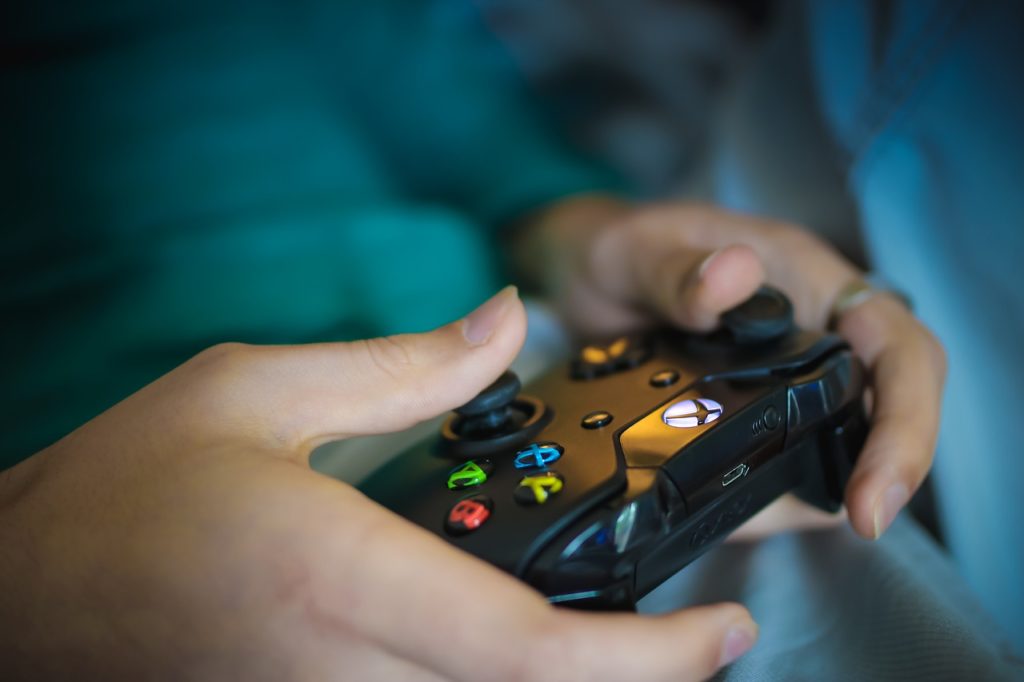
Gaming and internet addiction is a relatively new phenomenon, with research identifying the addictive qualities of video games and constant online connection.
With the internet being a dominant force in the developed world, one may find it quite difficult to unplug or log off from the multitude of devices that rule our lives.
Losing one's Wi-Fi connection could seem as drastic a problem as losing consciousness- perhaps an exaggeration, but we've all felt that sense of desperation when an online connection is temporarily lost.
With work, education, and socializing taking place online as often as in real life (if not more), it's no surprise that many individuals experience withdrawal when unable to access the internet.
While there are certainly positive aspects to the digital assistance we've come to rely on lately, like the ability to work remotely or connect with long-lost friends through social media, the technological era has brought about problems never before experienced by humankind.
The Endless Possibilities of Gaming
Gaming addiction is a subset of internet addiction, largely affecting children, adolescents, and young adults. From the introduction of arcade games like Pac-Man and pinball, to modern day first person role-playing games like World of Warcraft, Final Fantasy, or Minecraft, one can engage in online gaming through a video game console, a computer, a tablet, and a smart phone- all at the same time!
The possibilities within gaming can be endless, with online gaming communities existing whether or not the user is logged on. Hours are spent on character development and unlocking achievements, unfortunately at the sacrifice of personal development and real-world social contact. Those at higher risk of developing a gaming addiction tend to be:
- More socially withdrawn or introverted
- Have low self-esteem and/or low self-efficacy
- Individuals with higher rates of impulsivity, aggression, or hostility
- Sensation-seekers
- And those who tend to get bored easily.
Online characters may appear to make up for any perceived shortcomings- you can literally be anyone you want to be online. The fast-paced, interactive environments of online games often seem much more exciting than real life, leading a couple of hours of game time each day into a full-blown gaming addiction.
Recognizing a Problem
 As many as 15% of North American children meet criteria for internet abuse or addiction!
As many as 15% of North American children meet criteria for internet abuse or addiction!
Unlike other addictions, such as gambling or drinking, it is nearly impossible to abstain completely from the internet these days, making recovery from gaming addiction particularly problematic.
Additionally, kids and teens don't necessarily recognize excessive gaming as a problem- suddenly the parent who tries to limit screen time or the teacher who won't allow devices into the classroom becomes the bad guy.
Half the battle of treatment is getting the addict to recognize the problem in the first place!
Treatment Options
Like other addictions, successful treatment options include such things as substitution - substituting the problematic behavior with another, more positive behavior. The "rush" experienced by the online gamer after winning a race or unlocking a new achievement is exactly the same as that experienced by the pathological gambler winning a hand of poker, the alcoholic acquiring another drink, or the drug user getting one more hit.
This may seem like a grim comparison, and what parent would ever associate their child's excitement from winning a game to a drug user getting high- in reality, the area of the brain responsible for releasing endorphins- the dopamine reward center- cannot differentiate between the source of the pleasurable experience. Whether the "high" comes from alcohol or drugs, food, exercise, or online games, the release of dopamine is the same.
Keeping this in mind, finding alternative activities that provide a similar release of endorphins is key. Exercise, especially in the form or team sports or socially-engaging activities, is a great alternative for the gaming addict.
Besides the physiological benefits associated with exercise, the gamer can still engage in competitive play and community building found in online games. Social activities are helpful for building the social and communication skills that may be lacking in the gaming addict; building an online persona and interacting with others online is quite different than socializing in real life.
The Benefits of Family Therapy
Family and individual therapy can also be an effective treatment option for the gaming addict. Individual therapy will help to identify the underlying reasons leading to gaming addiction; many children or teens experiencing difficulties at school or at home will turn to online gaming as a way of escaping real life stress.
Identifying problems like bullying, low self-esteem, or problems at home is a first step in helping to alleviate the addiction.
 Family therapy is helpful for skill and relationship building within the family; the therapist can help with identifying risk factors for relapse, or creating boundaries around screen time that both parents and kids can agree to.
Family therapy is helpful for skill and relationship building within the family; the therapist can help with identifying risk factors for relapse, or creating boundaries around screen time that both parents and kids can agree to.
Breaking down previous habits and building in new ones is no easy feat; support and feedback from a therapist may result in greater success than trying to do it alone.
Parents can be guided on how to set boundaries and limits on screen time, build in device-free time each day, and suggest alternative activities to do instead.
Lastly, a therapist may be able to identify whether or not pharmaceutical treatment for the addiction ought to be considered; a physician's referral may be necessary if this treatment option seems best.
Limited research exists on pharmaceutical treatment for gaming addiction; however, buproprion (an anti-depressant medication) or methylphenidate (most commonly known as Ritalin) have shown positive results in children undergoing treatment for internet addiction.
As with any addiction, early intervention and prevention is so important; it may be difficult to set limits on game time (or screen time in general), but it really is key in preventing or treating gaming addiction. Staying active mentally, physically, and socially can help draw kids out of the virtual world and back into real life.
About the author:
 Stephanie Sands is currently pursuing a Bachelor of Science degree in Kinesiology, majoring in Mind Sciences. She completed an Honors Degree in Psychology in 2012, focusing on eating disorders and personality. She intends to combine her educational background into a holistic wellness practice, to strengthen mental health through a combination of counselling, physical activity, and nutrition coaching.
Stephanie Sands is currently pursuing a Bachelor of Science degree in Kinesiology, majoring in Mind Sciences. She completed an Honors Degree in Psychology in 2012, focusing on eating disorders and personality. She intends to combine her educational background into a holistic wellness practice, to strengthen mental health through a combination of counselling, physical activity, and nutrition coaching.
The opinions and views of our guest contributors are shared to provide a broad perspective of addictions. These are not necessarily the views of Addiction Hope, but an effort to offer discussion of various issues by different concerned individuals.
We at Addiction Hope understand that addictions result from a combination of environmental and genetic factors. If you or a loved one are suffering from an addiction, please know that there is hope for you, and seek immediate professional help.
Reviewed By: Jacquelyn Ekern, MS, LPC on February 3, 2016
Published on AddictionHope.com
References
Kuss, D. J., & Griffiths, M. D. (2012). Internet gaming addiction: A systematic review of empirical research. International Journal of Mental Health and Addiction, 10, 2: 278-296.
Video Game Addiction. http://www.video-game-addiction.org/video-game-addiction-treatment.html
Young, K. (2009). Understanding online gaming addiction and treatment issues for adolescents. The American Journal of Family Therapy, 37: 355-372.
Young, K. S. (2007). Cognitive behavior therapy with internet addicts: Treatment outcomes and implications. CyberPsychology & Behavior, 10(5): 671-680.
